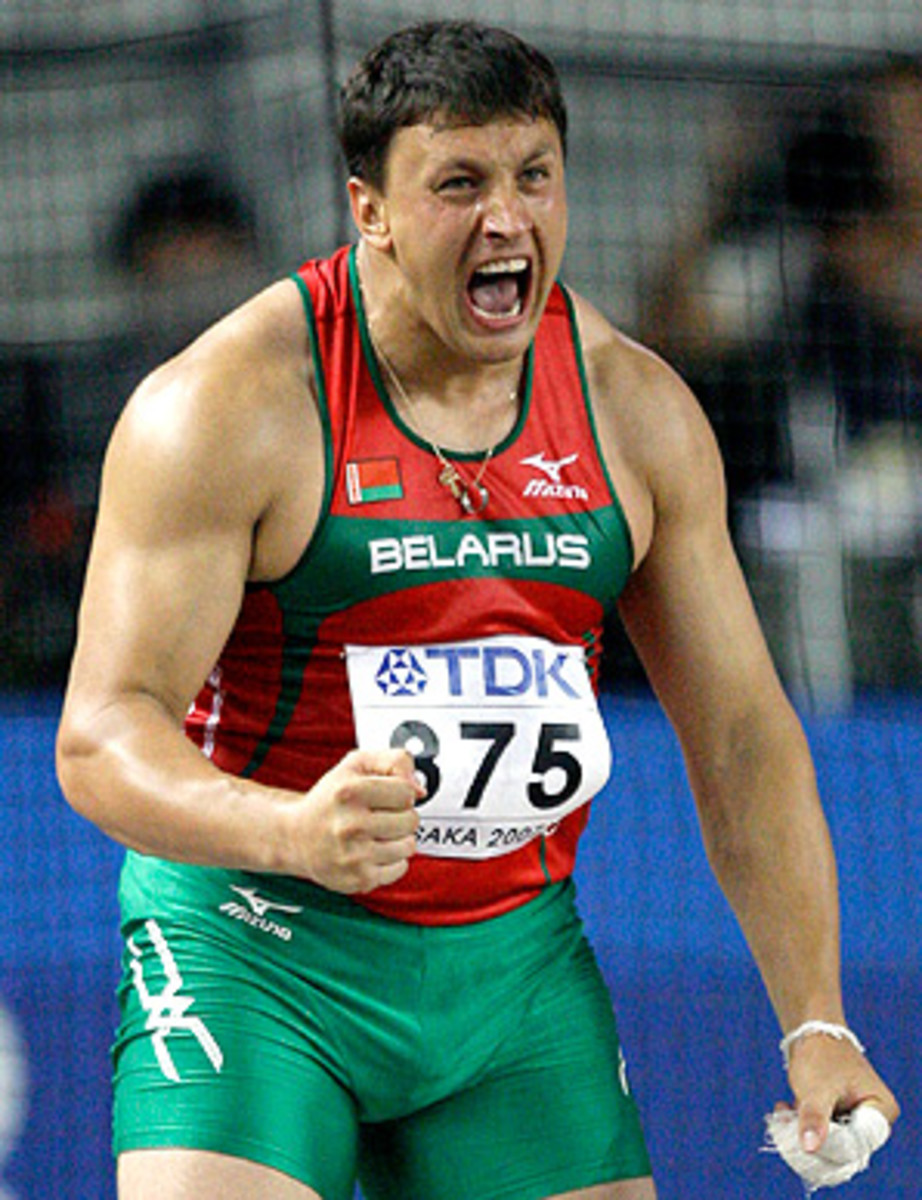IOC to hold hearings on positive doping samples from 2004 Games
LONDON (AP) -- The IOC will hold hearings early next month for the five athletes whose doping samples came back positive in retests from the 2004 Athens Olympics, the final step that could lead to the stripping of several medals.
IOC medical commission chairman Arne Ljungqvist told The Associated Press on Monday that disciplinary hearings will determine whether the athletes should be disqualified retroactively and have any medals revoked.
Five samples came back positive earlier this year when the International Olympic Committee reanalyzed about 100 Athens samples in a bid to catch any drug cheats who avoided detection at the time. The backup "B" samples were also retested and confirmed the positive findings.
Ivan Tskikhan of Belarus, who won the silver medal in the hammer throw in Athens, was publicly identified by the Belarus Olympic Committee as among those caught in the retests. He was sent home from the London Games.
The IOC has not identified the other athletes involved.
German public broadcaster ARD on Monday identified them as shot put gold medalist Yuriy Bilonog of Ukraine and three bronze medalists - women's shot putter Svetlana Krivelyova of Russia, discus thrower Irina Yatchenko of Belarus and weightlifter Oleg Perepechenov of Russia.
IOC spokesman Mark Adams said he could not comment on the report while the disciplinary cases were still in progress.
The IOC's ruling executive board meets in Lausanne, Switzerland, from Dec. 4-5 and is expected to review the cases.
Since Athens, the IOC has been storing doping samples from each Olympics for eight years to allow for retesting. The eight-year statute of limitations for acting on Athens results expires this year.
In 2004, the Athens Games produced a record 26 doping cases, more than double the previous Olympic high of 12 in Los Angeles in 1984. Six medalists, including two gold winners, were caught at the time.
If Bilonog's victory in the shot put is now at risk, Adam Nelson of the United States would stand to move up to the gold that he nearly won eight years ago.
In the ARD television program, officials of the World Anti-Doping Agency criticized the IOC for not retesting more of the 3,000-plus samples from Athens.
Ljungqvist defended the IOC's procedures.
"It's easier said than done," he told the AP. "These were the first samples ever stored for eight years. We had to identify risk factors. There were issues with the quality and quantity of the samples and the chain of custody. It's easy to criticize, but we were the first to retest and we have found some positive results."






